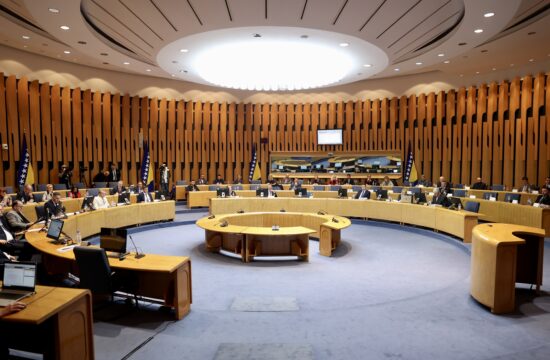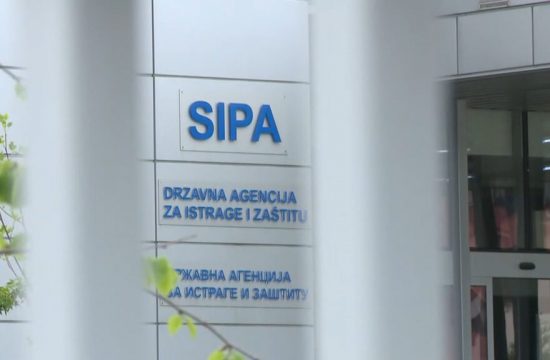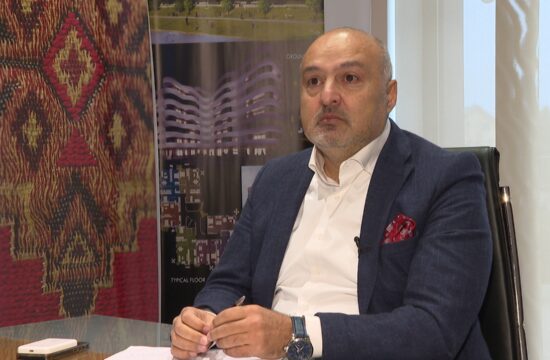
Croatia's mobile network Tele2 changed its name to Telemach Croatia, its owner, United Group, announced this week. The Dutch-based group also announced they plan to invest up to €230 million in modernising the mobile network in order to bring its customers the complete 5G experience and to build the most advanced optical network in Croatia. Viktor Pavlinic, CEO of Telemach Croatia, appeared on N1 Television's morning programme Novi Dan on Friday to talk about company's investment plans.
Pavlinic was first asked about benefits of 5G technology.
“This is a revolution for the industry. 5G as a new technology, a new generation of technology, will bring many improvements, which is mainly seen in much higher speeds of data transfer. The network's latency will also be much much better,” Pavlinic said.
He added that 5G will allow drones to become much more useful for the general population, and listed some examples of potential usage of this technology.
“Firefighters, who already use drones to some extent, will now be able to use 5G to scan fire sites in much more remote locations, as communicating with a flying drone will be made much more responsive. This can be used to achieve better operative abilities, greater safety for citizens, etc.
Another use case scenario is the car industry. The network coverage will be greater, data transfer speeds will be much better, and so on. This will not happen overnight, but it wil happen eventually,” Pavlinic said.
5G already used across the world
Various countries around the world are currently in different stages of implementing 5G network, he said.
“Countries in East Asia are at the forefront of implementing 5G – places like Japan, South Korea, etc. In South Korea, they had already implemented this technology in some use case scenarios for the (2018) Winter Olympics (in PyeongChang). In Europe, the number of countries implementing 5G commercially is increasing,” Pavlinic said, and talked about prerequisite for rolling out 5G networks.
Three conditions must be met for every mobile network: building the infrastructure, devices that support the new technology, and assigning the radio frequency spectrum which will be used for applications of this technology. In Croatia, assigning frequencies is planned to happen next year, and the process is governed by (the government telecom agency) Hakom,” Pavlinic said.
Croatia's Osijek is the country's first ‘5G City’
All three mobile networks in Croatia have been involved in developing 5G here, and the eastern city of Osijek has been selected to become the country's first “5G City.”
“Osijek will serve as an example of what 5G can do even before the frequency spectrum is assigned for mass usage in Croatia,” he said.
Croatia is also known for its unusual geographic configuration, which means it presents unique challenges in terms of network coverage.
“We have a large concentration of population in small areas, we have a very indented coastline, and many forested and mountainous regions. It's not really the same thing covering Croatia's territory compared to say the Netherlands, which is more or less entirely flat. But in case of 5G the coverage is bound to be larger.
Compared to other countries, mobile networks and services that Croatians enjoy today are at a very high level. Users can confirm that the level of services on offer, as well as the signal quality, are both good. And you can see that whenever we travel abroad. So in terms of mobile networks, Croatia belongs in the upper half of all EU countries. However, in terms of fixed line networks and network availability, Croatia is in the bottom half of the EU, and there's potential for progress there,” Pavlinic said.
He said that every mobile network operator has its own business strategy on implementing 5G.
“We are focused on investing in the right kind of 5G. We need a larger capacity for the network to use, and that will allow us higher speeds and a better user experience, and new use cases,” he added. The new thing about 5G is that the entire ecosystem allows for dynamic spectrum sharing using both existing 3g and 4G frequencies, meaning 5G can be used in bandwidths currently used by older technologies. However, this option cannot unleash the full potential of 5G, because you are using pre-existing infrastructure,” Pavlinic said.
€230 million investment over a five-year period
When it comes to investments, Pavlinic said that they shouldn't be viewed short-term.
“In the telecom world we like to talk about five-year cycles. United Group, which owns Telemach, has allocated a €230 million investment over a five-year period. This includes €130 million which will be spent on improving and investing in the mobile network. This is the company's core business. The main goal is to increase coverage,” Pavlinic said.
He added that, although the coverage is large, there is always room for progress, so users can expect improvements in that regard.
Every crisis is also an opportunity
As for the coronavirus epidemic, Pavlinic said that this was certainly a public health crisis, but added that every crisis is an opportunity for new ways of thinking.
“The crisis showed just how much we – as a society and a community – have became dependent on technology and connectivity, in a good way. Telecommunications are now placed high in terms of any community's priorities. The pressure we have felt – and this was especially pronounced in mobile networks – was the significantly higher traffic growth. This however did not translate to increase in revenues – since most users subscribe to flat-rate plans – but we had to pay more attention to maintaining the stability of our services and support our business, and in doing so support the entire community,” Pavlinic said.
He said that the March 2020 Zagreb earthquake had put even more pressure on telecoms.
“Many people were forced to flee to areas where the infrastructure is not built to handle the increase in traffic. We all had to start doing things remotely, children took school lessons remotely, and all of that went through telecom networks. If they hadn't been equipped to handle this, we would have had a much larger problem,” Pavlinic said.
Investing in new technology is important for the entire society
“We have to keep up with the times. Investing in new technologies is not only essential for the industry, it's also important for the society at large. We. as a company, had to adjust to these circumstances, we sent our employees to work from home, but luckily we have had experience with that from before. We have to be thankful for our employees, because they showed a very high level of motivation, responsibility, and commitment to the company in these difficult times. I am very grateful for that because that was crucial in helping the company function.
People's health is always a priority, and then keeping jobs and assisting the community however we can, by providing stable services and network coverage. If more can be done in terms of socially responsible behaviour, we will be prepared do to that as well. We actually added more jobs, we prepared for new investment cycles and for the time ahead,” Pavlinic said.




